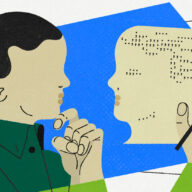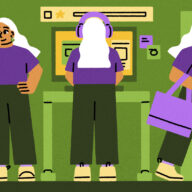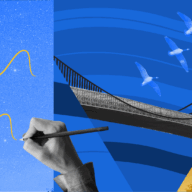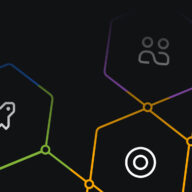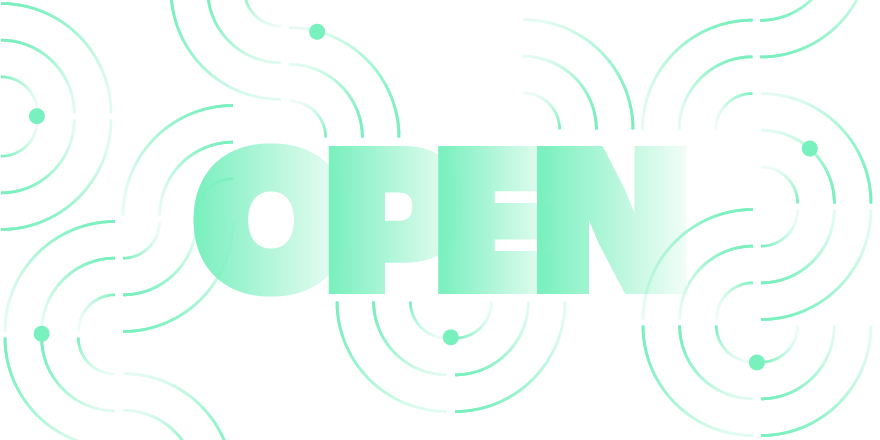This four-letter word is the future of teamwork
Why Open is the driving force behind all true innovation.
Today, on the final day of Summit Europe, we got real about some of the four-letter words inherent in teamwork. You know, the words you use when you’re frustrated, behind schedule, or disappointed with how something turned out. I can’t write them all here, but it’s likely we all use them more than we should.
Fail… Work… Quit…
But, not all four-letter words are so bad. In fact, there’s a four-letter word that can change all our workplaces for the better.
Open
It’s a word, and concept, that has a special place within Atlassian. There’s what it doesn’t mean (closed), and what it implies (things are accessible). There’s what it looks like (no walls), and what it feels like (freeing). And for us, it’s shorthand for our culture, our approach to problem-solving, and our philosophy around building products.
Open is jam-packed with meaning. I mean, how many four-letter words have that kind of dimensionality? (Don’t answer that.)
We’re betting the farm on this one word, but with good reason. Teams that make information freely accessible make better decisions. Teams that share their honest opinions with respect trust each other more readily. Teams that believe that the best ideas can come from anywhere are more inventive. In short, teams who work openly create more value, faster.
Without it, potential is left on the table
And yet, much of the world still works in a closed way, optimizing for collaboration and information exchange on a need-to-know, need-to-share basis. Information is hidden or lost, bonds between teams and teammates are weak, and perspectives are withheld. Smart people burn out, and progress grinds to a halt. Four-letter words – the bad kinds – abound.
That’s why we’re doubling down on working openly, to unleash the potential of our teams, and everyone else’s. The beauty of this belief, though, is that it’s not a top-down decree. It’s a choice we make as individuals. It means catching ourselves when we’re about to shut an idea out, and opening up our ears to listen when we think we know better. It means making ourselves a bit vulnerable in order to be known a bit better. It’s a bit scary, but it’s so worthwhile.
What Open means to Atlassian
Because Open is so rich with meaning and personal interpretation, I asked Atlassians across teams and offices what it’s meant to them, and why it’s important to the work they do.
“You get comfortable with something being a little bit scrappy”
Charlie Marriott, Program Manager
I think the main transition is getting comfortable with showing things in a draft form. In a closed environment, you want to make sure something is really polished before you actually go and show it to the world.
I seek feedback early now when I previously would have just tried to perfect it myself. I can reach out to team members and just say, “Hey, I’ve got this 70% there. I’d love your feedback. Does this make sense to you?”
If you’re open from the start, you get comfortable with something being a little bit scrappy. A lot of the problem solving that we do in the company comes from people just doing their work in a very public forum, and being open to critique and feedback at a very early stage. It makes you faster.
“It’s impossible to use information as a weapon”
Scott Rubin, Head of Brand and Communications

When I go into a project with somebody, I can assume that everything that I know, they can know. And everything they know, I should know as well. It creates a common foundation for our collaboration.
It also means that it’s impossible to use information as a weapon, to withhold information or release selective parts of it. When information is available openly, people can just do their work based on a shared context, understanding that everybody is starting from the same pool of knowledge, but they’re going to come to it from different ways.
Being open at work starts with open mindedness, with holding strong ideas but holding them weakly.
It’s being unafraid to be wrong because you work in an environment where being wrong is just part of the conversation rather than a condemnation.
The open way of being means that I accept on face value what others are saying and doing, and I know that I’m accepted at face value for what I’m saying and doing so that we don’t have to waste time with the messiness that comes from posturing in a closed environment.
“It feels like I’m completely accepted”
Gisele Karame-Kemp, Executive Assistant
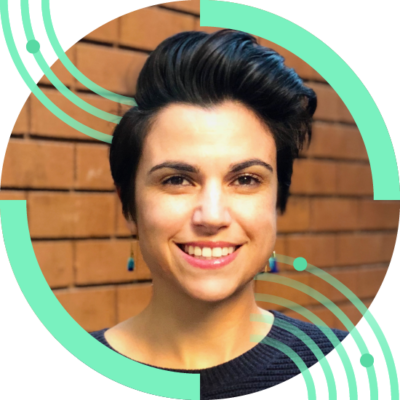 One funny thing is that I’ve changed the way I look dramatically. Being an EA, I suppose I had a certain image to uphold in the corporate roles I held. I always wore dresses and looked polished.
One funny thing is that I’ve changed the way I look dramatically. Being an EA, I suppose I had a certain image to uphold in the corporate roles I held. I always wore dresses and looked polished.
I love coming to work at Atlassian and wearing jeans and runners all the time. I have chopped my hair off radically. It feels like I’m completely accepted, and that gives me a certain level of freedom that I hadn’t ever considered before. It wasn’t something that I was necessarily looking for, but being surrounded by people who are comfortable in their own skin gave me the freedom to just have some fun.
“You make sensible decisions because you see the full picture”
John Ville, Editorial Director
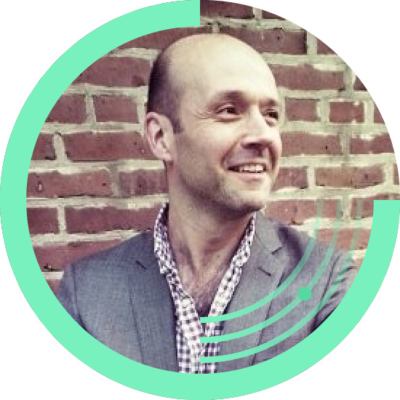 I came from an industry that was very hierarchical. It felt very closed off, and everything was siloed. There was a lot of protected information, I thought unnecessarily so. And stuff generally got stuck in certain places.
I came from an industry that was very hierarchical. It felt very closed off, and everything was siloed. There was a lot of protected information, I thought unnecessarily so. And stuff generally got stuck in certain places.
What’s refreshing about opening up information is that it allows you to make sensible decisions because you see the full picture. It really has helped me view different perspectives and get the job done.
There are certain things you need to be closed about, certain financial information, certain personal information. However, if you go in with an open attitude to everything, you will be able to apply open to certain areas of the business.
When people offer a different approach, it really is eye opening. And you think to yourself, “I haven’t thought about that.” That gives you a new perspective on things, and that’s incredibly useful for doing any job.
“There are no stupid questions”
Jamey Austin, Writer
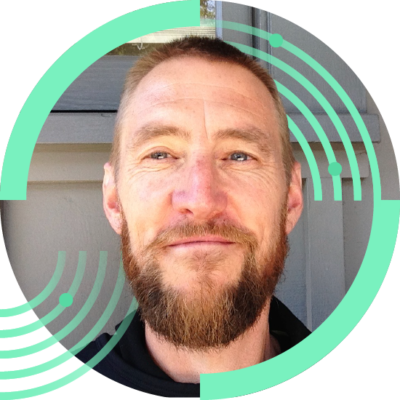 Open is greatly enhanced by modeling open behaviors. It’s the classic: “there are no stupid questions” thing that really needs to be lived out by everyone, especially leaders.
Open is greatly enhanced by modeling open behaviors. It’s the classic: “there are no stupid questions” thing that really needs to be lived out by everyone, especially leaders.
I remember watching people more senior than me asking what may have been either a risky or “dumb question.” And it was a great experience because once it was modeled that really any question was valid, everybody sort of sighed and went, “Oh, right. You can do that.”
“I feel seen”
Christine Dela Rosa, Brand Manager
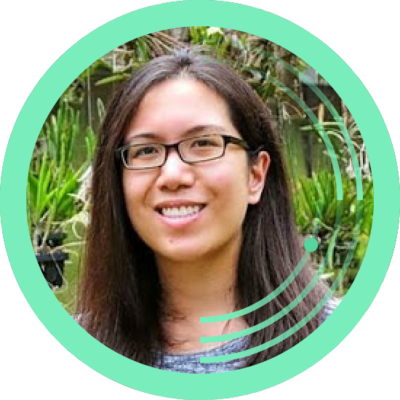 Coming into Atlassian I was accustomed to restraining conversation topics with colleagues to what I was working on. But over time, I’ve learned to share interests like TV shows and games and social events — which, to my pleasant surprise, got teammates to know a little more about me and vice versa.
Coming into Atlassian I was accustomed to restraining conversation topics with colleagues to what I was working on. But over time, I’ve learned to share interests like TV shows and games and social events — which, to my pleasant surprise, got teammates to know a little more about me and vice versa.
All the sharing gives my teams more context about each other and we’re much better connected as a result. And as a bonus, the energy saved from not having to constrain myself got re-channeled into more productive energy.
“People are not punished for finding information”
Anton Black, Security Engineer
 Open means that information is publicly available within the company and not discouraged from being accessed. It’s easy to find. People are not punished for finding it and using it. And decisions are made transparently, with the reasoning laid out.
Open means that information is publicly available within the company and not discouraged from being accessed. It’s easy to find. People are not punished for finding it and using it. And decisions are made transparently, with the reasoning laid out.
“I can be myself”
Carrie Johnson, Head of Workplace Design
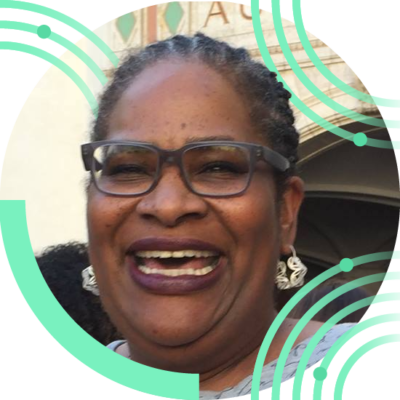 I can share. I can be myself. I can be loud. I can laugh.
I can share. I can be myself. I can be loud. I can laugh.
And I can still be successful and get stuff done.
How will you be open?
Working open will look different for everyone. How will you take this back to your team?
For more inspiration, check out Jay (Company President), Bek (Head of Talent), and Molly’s (Head of Strategy and Ops, R&D) full talk on how we think about working openly, and take home some of our Open Artwork that you can download, print out, or make your desktop wallpaper.










